Artists aren’t naturally great at the business side of life, or of their art. All generalizations assumed, good and bad… We’re just not naturally equipped in this area. It’s not usually our area of purpose and frankly never why any of us get into this. It’s a real thing, and something that can only serve your own interests, and your art as well, to understand it as a truth, and recognize the strengths and weaknesses you have towards this side of life. Whether that means cleaving the business side of your art as much as possible and workings a day job to support your off work art making, assuming you’re not fortuneate enough to have a personal wealth or a partner to support this… or being fully immersed in the transactional nature of business and how it intertwines with your experiential and process nature of your art. The choices and the wide range of potential paths between these extremes is as personal as it is vast. But don;t mistake not choosing for not participating- you can have these decisions made for you, and not necessarily with your own interests in mind, or you can be in command of those fates and steer your own decisions. Not choosing is then also a choice, and not one I recommend.
First off the thing that we should all come to face, is that thing in us as artists, or creatives generally, is not necessarily also the thing that makes our financial choices like other people’s. I often refer to half jokingly, that art is akin to a drug addiction. And it is, but it’s addiction simulacrum- a reproduction of an addiction without the original source that might trigger it. We are born addicted to art before we even know what art is. Artists discover their art nature, they don;t invent it. Sometimes we get there early through sheer force of our personalities, most times we come to it later, either thanks to the encouragement and openness of our parents or guardians, teachers or comrades in life that encourage and support a natural inclination to art. But art takes, and only gives when it first gets to take. Art is selfish to itself in that way. We desire art, hear its call or reach to its image and in doing so we agree to a relationship that it both determines and surrenders agency for. Art doesn’t necessarily care what you make with it or even make it well and worth seeing, as long as you make it. None of this is transactional, or financial. It’s a relationship we have with creativity that is unique to a kind of person for whom creative acts are the most important acts to experience. Wanting something is a normal healthy desire true to all of us all the time, needing something is an addiction. We are addicted to air and water, to food, to sleep and most would argue to each other as social mammals. Whether or not we want art, artists NEED it. I know I do. if everything in my life were stripped away, stolen burned or destroyed… if it were all gone, my kids, wife and best friend, my home all my stuff, even my entire body of artwork wiped from the earth… I would still have art to live for. I need art to Mae sense of things, to process joy, fear, love and grief, I need it live and to have a reason to live as much as any priest needs his/her god to pray to and worship and delight in its divine nature. I need art but I know it doesn’t need me in the same way, but I require it in a way that is only getting stronger as I live with this addiction, not less. They say you never cease being an addict, and that recovery is a lifelong event. Once you’ve passed through the vale and become an alcoholic, or a heroin, or food, or sex addict, you will always be thus until you stop being at all, and the you will spend the rest of your life contending with that permanent state ion needing. I cannot imagine a more honest expression of what it is to be an artist than that. We could go on for a full article about this aspect alone, but let’s save that for another time and for the sake of today just assume the premise so we can get down to more practical things.
Keeping this to the art making realm for brevity… we as artists will easily spend more money on a tube of paint to make our work than we may be willing to do on food that will keep us alive. Art pushes us to act against our own self interests for the sake of art. This is good for our art, but obviously not necessarily great for our diet nor our financial choices. because we act for another’s own interests against our own, we tend to be terrible at contract negotiating, or managing our publicity, advocating for ourselves in editorial meetings or fighting for what we need and deserve as artists. We tend as a species of human to shy away from these things and it makes us susceptive to scallawags who know this about us and use that to our disadvantage sometimes. Even perfectly benign and friendly coworkers might tend to use this against us even without knowing, but in my experience most people know what they’re doing and why, more than they care to admit. us too, so get ahold of the reigns and make the choices, good or foul, at least choices you make consciously and with full awareness so you can own them, learn from them and benefit from them. At the end of the day Artists are bad at business, but it’s best for us if we learn to get better at it. Because if we don’t we can undermine our ability to do the thing we’re here to do: make art.
It’s not a sin to be smart about your business, or to make decisions about your commercial viability, and it’s not selling out to sell your work anymore than it’s more noble to sell your time to a job at a Starbucks so you can keep your work “pure” for not making any money with it. It’s not a sin to take on commercial work you don’t necessarily care for as you’re coming up during the period of your art life I like to call the “Say-YES-to-EVERYTHING” period.
Making money with your art is inherently corruptive- anyone who tells you otherwise doesn’t know what they’re talking about or is pushing an agenda that isn’t yours. But I’m not holding up the artist-on-the-hilltop myth as a value either. I’m using “corruption” as an outside invasion or influence at its most basic level here. It can change the way you think about your work, sneak itself into your process at every stage and level of career, and start to drive the car if you’re not careful. I myself have been doing this long enough to have felt that interference, danced with it, lost to it and tamed it after a fashion. Making a living with your art will change your art, and pretending it won’t is just like lying on a train track prideful sure you’ll never get run over if you don’t think about it. Adult reality just doesn’t work like that. so it’s a conversation to have, and to prepare for because the issue actually becomes more acute the more successful you are. How you do it is the devil and his terrible details, but as I mentioned above doing it well requires an awareness of what you can do, want to do and what you may be good at doing when you inevitably have to bring business into your art. Whether you’re making money via selling your art in a gallery, working as a book illustrator or a designer… Here are a few brief categories to navigate through:
GETTING AN AGENT OR A MANAGER OR A GALLERY
Sometimes the smartest thing you can do as an artist is recognize your limits int he area of financial support and getting that help. I don’t do my own taxes because I would be disastrous at it that would cost me much more money than I would otherwise spend by hiring a smarter person to help me out here. If you’re a quiet inclusive introvert like the most of us are- and I would even say ALL of us are to some degree as artists- there’s nothing in pridefully refusing help int he area of interacting with clients, managing buyers or navigating pitches to publishers that does anyone any good at all. I worked with a manage and agent for almost the entirety of my career and learned almost as much from Allen Spiegel as I have in any other aspect of my life in that long term and deeply important relationship. He could fight for my rights and interests in a way I myself could not muster- and even now have a really hard time doing. A good manager or agent can vouch for you from a place outside of your ego problems we all share. Our desire to sublimate ourselves for our art pouts us in an extreme disadvantage when negotiating a contract, or fighting for rights and fair pay. I cannot stress enough how important it is to take on an agent or manager of some kind, even for a short time, even if you think you’re got the bravado and social skills to advocate for yourself fulsomely in a room full of powerful adults, than to go it alone and naked to the ferocious winds marshaled against you in those environments. A good agent/manager is there to take that fire, has the tools to fight back, and if they’re really good, do it in a way that doesn’t make the experience noxious or unpleasant. The great ones let the opposing forces leave the field feeling they’ve won even when they haven’t. Cling to those like grim death as they are as rare as golden calves birthing diamond nuggets.
The short of it is as a pitch here is this: recognize you aren’t going to be great at this, and certainly not when you’re starting out. Get help where you need it. Like it or not you WILL have to navigate the commercial world in some form when it comes to your art no matter what field you chase. If it’s a gallery owner shepherding your work through buyers and exhibits, or an agent bringing in commercial gigs, and beating noxious contracts into documents that work for you, they will almost always pay for themselves. It’s a bit like my argument against assists refusing to take credit cards because they don’t like the fees- a penny-wise, young-foolish notion because if it costs you the sale 5% of something is still a thousand times more than a 100% of nothing.
We may be social creatures but the side of the financial side of the world is using the part of our brains we aren’t especially strong at- find someone who thrives in that hemisphere of the mind and make of them a partnership. Allen may not himself be an artist – as his hilarious self portraits on the summary letters from incoming paychecks will attest- but he loved art and the arts even more than some artists I know. He understood our goofiness as a fact and knew how to work with artists and talk with the normal adult minded financial people too. I would not be anywhere close to where I am in my career were it not for his wisdom friendship and guidance, and the same could be said for all of us who were gifted to have him work with us for so long. He is a lucky and rare gift, but that doesn’t mean that’s the only way to it- you might need an assembled team of an agent, a lawyer and a manager/rep. To each their own in this. The point here is to recognize where you are weak and support it with aids who strengthen you. It is important to try and avoid an over dependency on others to do this work for you- you are still weak in those areas even if you employ those wh are strong in them. Watch, learn and try to gather as much as you can from it while you have them. There will be times where you need to employ those skills alone and on your own. Make all of it a teacher so you can grow to be more independent and strong on your own should that come to pass… and it always does at some point.
BEING YOUR OWN MANAGER AND AGENT
This is the other extreme and is doable I think later in your life, than in the middling or early bits. An agent is permission to take seriously to most publishers- they offer legitimacy but also indemnified protection against future creative borne lawsuits and as a result many publishers don’t give keen glances at pitches, proposals or new creatives without one. So typically being able to operate sans agent, can only come with a latter career life that’s well established or early if you’re a blockbusting juggernaut. And it’s not just the professional accreditation an agent gives, it’s also the keen ability to give advice outside of the normal concerns of the artist. Which as stated above is a necessary value to all creatives, both because of their weakness for this particular side of things, but also as a freeing aspect that can allow the artist to focus on their own work, (the fun part as I often refer to it with clients). Being your own agent insists you lose this graceful barrier between the two worlds and will internalize the practice for you.
I know of only three artists I have ever met- and I have met oh so very many artists, who can navigate a contract negotiation with the necessary aplomb and manage their own painting too. I confess I envy it as a gift I myself do not possess. I can do it more now that I am doing it as a practice. but only because of what I learned from Allen. Of making myself present for the pitch meetings and negotiations. For working with production and doing as much as I was able to glean as I could manage so I knew how to do this without Allen, but also so I could better exploit the systems to make better work for myself, and learn how to convince others to support it, hire it and advocate for it int he right places. Business is at its core a social exercise, and we artists aren’t always the most social bunch. And again those of us who are are also often tsk-tsked at for that talent because someone somewhere got the notion it is beneath us to do so, and lowers us to practice it. It’s a stupid attitude to have and usually one proffered by people who don’t have your interests in mind at all. Being bad at the business stuff is as bad as refusing to participate in it out of snobbery, or ego or fear- worse in fact because in being bad at it, you are participating in your own sabotage. BUT, being in command of those decisions, of negotiating your own policies, pay and contractual obligations can be supremely liberating and empowering. Any choice made from a place of experience is a better choice than being lucky about it. Some rare few of us are born with this ability to do this naturally- the rest of us though CAN learn it, it just takes a lot of time and a LOT of errors to get there. But it’s not necessarily requiring talent- you can learn it. If could you can and I am really not great at this. I find it deeply exhausting and stressful and even in victory profoundly draining. My main goal is to be able to to make my work, and to do work I want to work on. Everything else is interference, but recognizing that some days you have to lose the drawing table for the computer to handle NDAs, contracts, billing and invoicing and god forbid, publicity and social media expression… this is also your work. Accept it as a fact of your career, learn to be as good enough at it as you need to be, and you’ll be in better shape ongoing. Even in a disaster, its’ better if you are partially responsible for it Han if it’s happening at you because your responsible advocate blew it somehow. Plus fires of your own making are always easier to put out.
Summarizing… the stuff we do that we are that make us artists isn’t really the same stuff that people who are good at business have or practice in. Again speaking entirely from my own limited experience, I just don’t hold much interest in it on its own merits. I love being able to pay my bills, support my family and all the other stuff a living income can bring, but I don;t have the oomph to do it except for those reasons alone. My goals are less profitable- as much as I love doing a poster or an LP soundtrack for a Marvel property, I am weird enough to prefer to do it for an obscure Ozu film no one will ever seen again or care about. But Recognize that quality in myself enough to be smart about shoring up that weakness. For me that means staying yes to the big commercial gig, delighting in all the ways I can do what I do with it, but then parlay that juice back into making a poster for a Bergman film, a drawing series about logs, or a graphic novel with a friend. There’s a way to make it work, to keep to your art and do the best at what you do if you’re open minded and smart about it. I could certainly be better at it, but I’m a sight better along the way than I was back in NYC laughing off commercial choices, or having spent years with an agent who didn’t show me the ropes so I’m lost in his absence. You addiction and the thing your addicted to is a LOT more durable than you might think it is. It doesn’t get weaker from outside interference, if gets stronger from it, more complex and varied and more rewarding. And who knows you may reach a point where YOU can set the tone of your career and the moths come to YOUR flame. It happens rarely but it happens enough to be a real possibility.
ART OF IT’S OWN SAKE FOREVER
If you’re someone who really cannot fathom or wish to fathom the idea of interacting professionally with any aspect of your art with the commercial world, whether it’s through a gallery show or a publisher of any sort, you are the rarest of the types to work with, and your best hope is to either navigate life in the wild off grid like a hermit in hunting cabin, or as a side hobby obsessively worked over beyond your usual stamp collector, or marrying rich, or inheriting wealth to support your efforts. I’m not sure any of it is actually particularly good for the art, because I think art gets better with the more experiences you have with it. Like people, it grows from the negative and positive interactions with the world we live in. No commercial based influences aren’t exclusive and you can show your work and interact and still avoid it for sure. But in my experience, when you don’t have the pressures of need outside of your art to push your life into shapes you couldn’t predict, the art tends to get stale, or overly naval gazing and self indulgent. It doesn’t have to grow so it doesn’t grow.
I’m not sure sure what it is but folks I know who don’t have any financial struggles don’t tend to make the work they could make if they had more outside pressures forcing changes they might not expect or accepting challenges need requires that comfort seems to prevent. the Work seems to desire challenges to make it and hone it, and we can invoke swords becoming stronger through fire, or the Pinus Contorta only carrying on its seed from the ashes of catastrophe… but really like anything your art gets better with challenge than with paradise. The idea of having no financial stresses is a dream for sure and I envy anyone who enjoys it, and maybe the fact that it tends to weaken the art is some solace for that, but I also think it has the benefit of being true. If you are one of the lucky few who married well or inherited a fortune, won the lottery or whatever way you got to it, then I suspect the onus then is to set your own limits, engage actively in putting yourself in front of challenges and doing everything you can to take away the safety net from the process of making your work. Invite challenges actively rather than be responsive to uncontrolled ones. It’s not easy. Comfort likes comfort and it’s hard to push out when you’re not required to, because it’s damned HARD. I think there’s something to certain rougher climates producing finer art than more vacations type places, and from this same cause/effect dynamic of struggle vs comfort. An uptown problem to have most of us would envy for sure, but like the potential poison of success too early on, you have to stand and fight for the challenges that you’re inviting especially of those challenges are yourself, and an easy way of living.










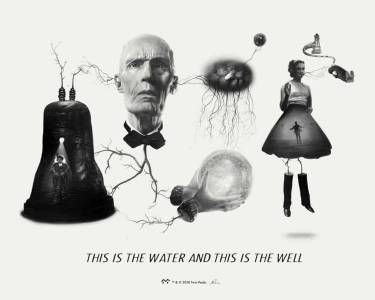
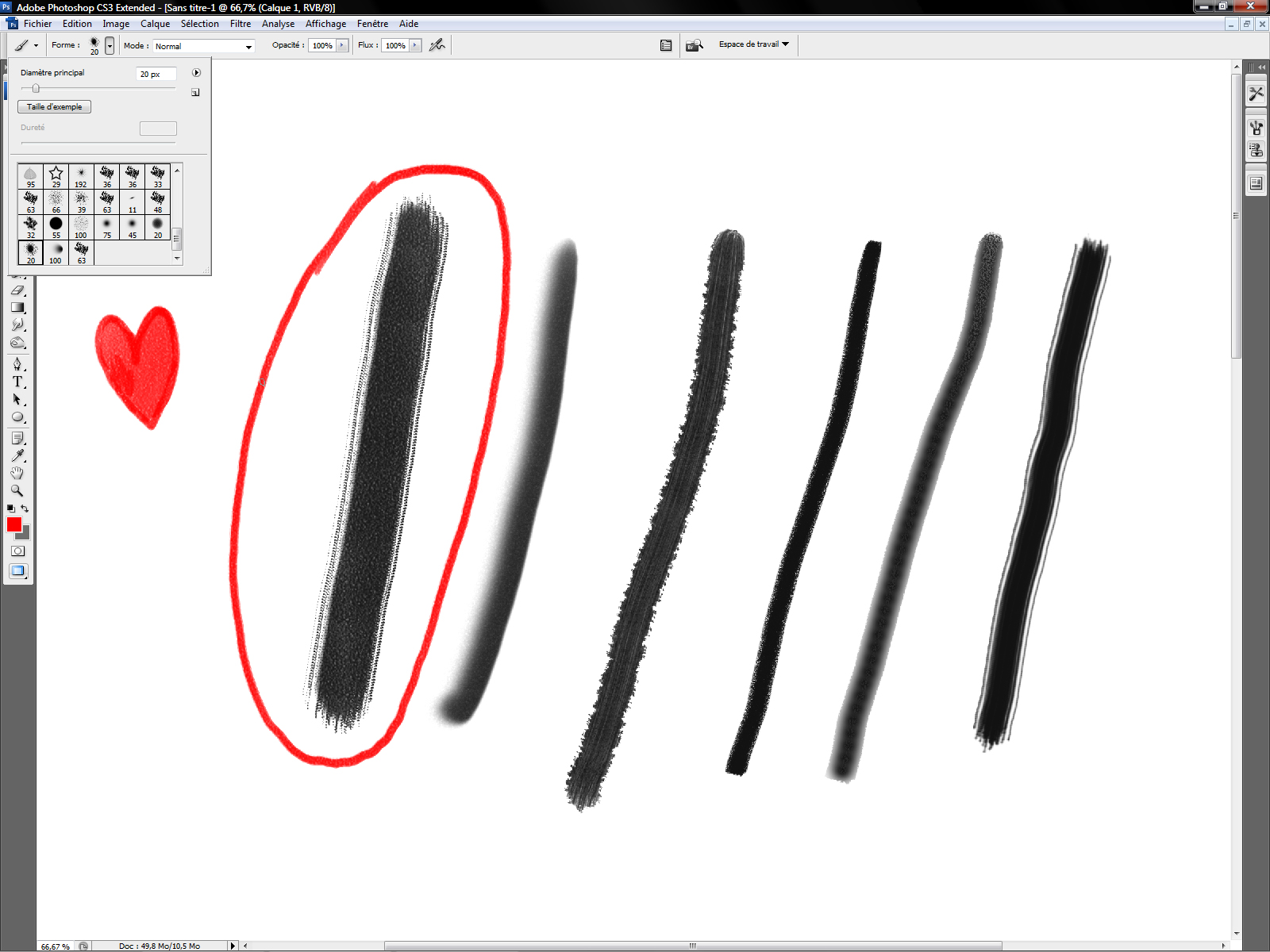
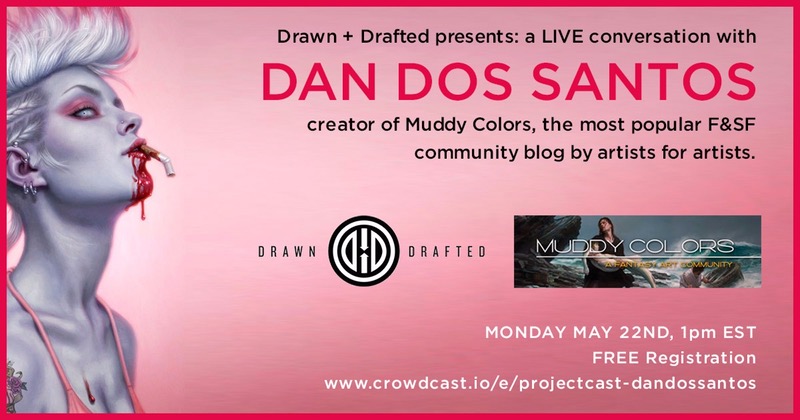
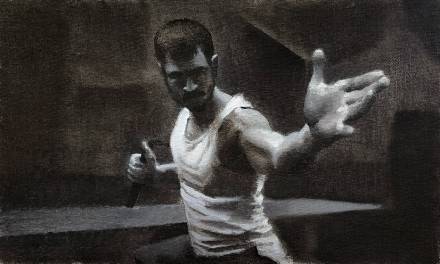
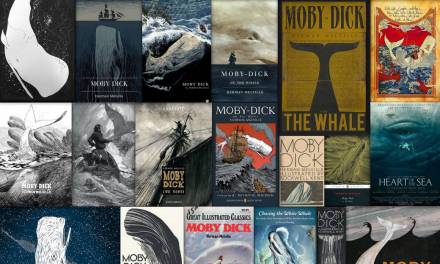
This is a very thoughtful article on the illustration business Greg. I worked as an animator for 35 years, and the challenges in that arena mirror that of being an illustrator in many ways. Being “forced” to take on various projects to survive financially can certainly be a growing experience as an artist. Assuming one works with competent directors and producers that is. However, on the negative side, I have worked on quite a few productions where my animation was ruined by poor direction, despite my best efforts to please. Yet even those projects can be a learning experience, as long as you have a positive attitude and keep your spirits up.
I recently retired from the animation business, and now create personal fine art paintings. In some ways, I’m like the type you talk about in your last paragraph, with no financial pressures to create for someone else. It’s awesome to do your own thing! As long as you set personal goals and challenges to improve, it is very satisfying. Although I will admit, without the pressure of a deadline, my output needs improvement. I gotta work on that.
Thanks- yeah I’m currently writing a prose only novel, with no idea if it will work or if it will get published or whatever. it’s taking a lot of time and energy but there’s currently zero financial or practical aspect influencing it… and the breath of freedom in that is sort of marvelous. It certainly helps not to have a fiscal obligation intensifying the common and needed moments of getting lost and stuck and having to find a way through… not having an editor tapping his/her toes waiting for the manuscript… this is the first time I’ve written something this in depth that didn’t;t have that dynamic and it’s sort of marvelous in a lot of ways. I am making all the mistakes, and all the failures are mine right now… but when it sings and succeeds those are all mine too. It’s making me want to get back to making more art without the commercial aspect being part of the process. The result is different- once the baby is baked, then the influence is minimal. But right now in the womb… it can be severe. it’s a stark difference.
Interesting article, but I disagree with the assumption that artists are naturally bad with money and it is a corruptive thing.
There are great entrepreneurs among artists and naturally business-minded creatives, but the messy introvert, starving artist of course exists too. I personally think the latter is a stereotype, and really harmful. This artist’s stereotype is what makes parents discourage their kids to pursue art, makes some potential artists themselves give up the pursuit, and especially gives clients free tickets to exploit artists, because…we are bad with business, right?
For the majority of history artists were considered craftsmen, in Ancient Greece “The Arts” didn’t even include painting or drawing (but was reserved for music, poetry, dance etc.). Art having the free-spirited, anything-goes definition is fairly recent.
There are people who treat art as a business first and foremost, start it late in life, do not have it as their life purpose, as opposed to “yeah they were born the artsy kid”. So what’s wrong with making popular comics, pet portraits, a bob ross landscape, or abstract flower wall art that sell well? Are they not artists? Are they lesser of an artist? Is art only worthy if it’s not made with money in mind? Many highly acclaimed old masters’ paintings were commissioned works after all.
In the end, art is highly subjective, and there might be people out there that appreciate and love popular art better, than weird art for the sake of maximizing weirdness, slapping on the label of “that’s art”.
I don’t think an artist needs to be afraid of being generic, or commercial if that is what brings them joy.
Oh that’s a valid point. I’ve been doing this for many decades now and have met a few financially minded artists, but they are by all means a rare breed. And speaking as one myself who is moderately capable, I find it’s not at all the same side of the brain at work in planning and conducting business as it is to make and create work. We tend to not be grand in the financial planning aspect as a thing because we’re more concerned with the non fiscal side of things. Our impulse is not usually profit first- and I work as a commercial artist most of the time and let me tell you, the money aspect is important, but I’d be doing this for free or a glass of warm water myself… and that puts us in a vulnerable position. plus as I mentioned we tend to be inherently insular and introverted as a species- again, not all of us of course- but certainly the vast majority of us, and particularly at the student level for whom this article is intended.
I think you’re missing the point though- I’m not stating a value judgement here, just pointing out the realities of being a working illustrator, and wrestling with the difficulties in finance being an influence on the work, justifying one’s fee for their work, and self worth when negotiating contracts. When you make your art your income, the pressure system changes drastically from making art for its own sake. The commercial influences are huge- again, I’ve got thirty years of wrestling with this, seeing it change, its influence… I don’t feel corrupted by it, but I do know I am changed by it. It’s a choice I made and make everyday, and not one if you don;t actually do this, that is hard to understand.
Art is subjective, business is not. Melding the two is a tricky thing, and not always done successfully or well. It’s not really a philosophical article but more a roadmap to the practical tricks of doing this for a living, and how best to navigate it, and establish from which side of the fence you’re operating from, and honoring it in a way that serves your art and your particular sense of joy and fulfillment. It’s a lot easier making your income from something else and leaving your art alone. It just is.